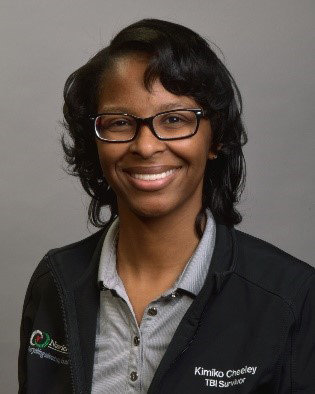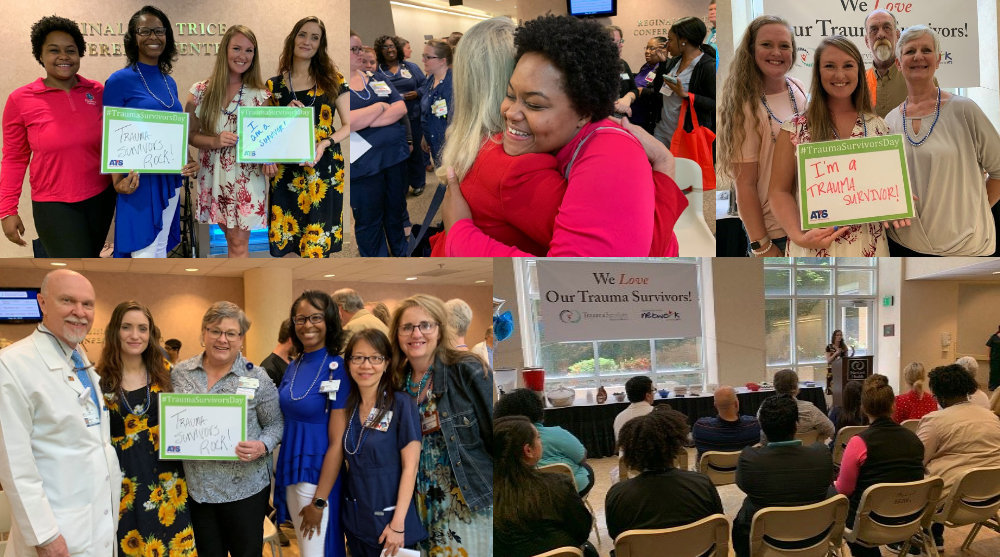
Kimiko's Story
I do not remember the day of my injury, but I was told that on December 26, 2017, my husband and I were making our normal Christmas rounds. We stopped by my mom's house to help move a tire. When we saw the massive size of the tractor tire, we immediately said, "No". Mom was adamant, and we reluctantly attempted to move it. My husband said we finally stopped from exhaustion and told my mom that we could not move the tire and she would have to wait until someone else could help. She called my younger brothers (ages 7 and 8), but we knew the tire was too heavy for them. We proceeded to attempt to move the tire again. Shortly thereafter, I lost my footing, and the tire fell on both of us. Luckily, my husband managed to wiggle his way from underneath the tire. However, the tire covered my entire body, and, unfortunately, I was not able to do the same. My husband stayed with me to try to keep me calm while my mom went to get something to help pry me from under the tire. I was told the last thing I said to my husband before passing out was I love you. The ambulance arrived, but the crew were unable to lift the tire off of me. They called the fire department. It took six men to free me from the tire leaving me unconscious for a lengthy amount of time. EMS started CPR with a return of spontaneous circulation after one round of compressions. I was intubated on the scene and transported to Atrium Health Navicent.
I had a Glasgow Coma Scale score of a 3T and a severe anoxic brain injury due to my "out of hospital" cardiac arrest. Upon arrival to the hospital, there was a collaboration between specialists specifically the trauma team and the medical director for the adult Palliative Care service. The decision was made to start the normothermia protocol also known as therapeutic temperature management. My body temperature was only lowered to 36 degrees Celsius due to my shivering versus having seizures. I was posturing and having sympathetic storming, which are signs of severe brain damage. I was in a coma for eight days. I had an intracranial pressure monitor place in my head to measure the pressure in my head. I seized so hard that I broke my dental alveoli, so all my front teeth had to be replaced. They said the first thing I asked when I woke up was, "What did you guys do to my teeth?"
Doctors were unsure of the extent of brain damage and what my new baseline would be. I was told that I would repeat things constantly because my short-term memory was impaired. I was transferred to the Shepherd Center where I stayed for three weeks. I had extensive occupational therapy, physical therapy, speech therapy and mental health therapy six days of the week. I am currently working at Atrium Health Navicent The Medical Center where I am the Palliative Care, Care Coordinator and the volunteer Trauma Survivors Network Coordinator.
To read other trauma survivor stories, go to: GeorgiaTraumaFoundation.org/why-trauma/
